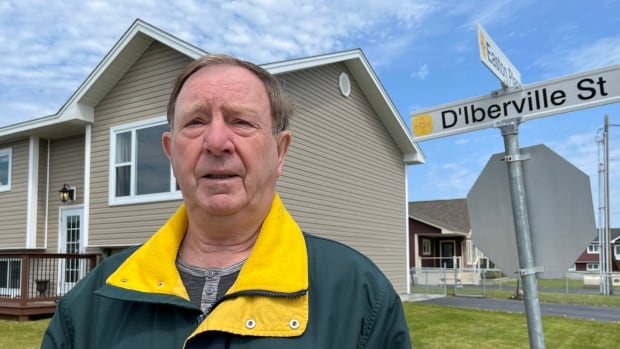A Carbonear resident is determined to have one of the town’s street names reviewed, as he feels it honours the wrong person — Pierre Le Moyne D’Iberville.
Lorne Power, who doesn’t live on D’Iberville Street himself, believes it’s inappropriate for a street to be named after a 17th century French soldier who came to destroy the town.
“I don’t think it’s fair. What was right 10, 15, 20 years ago, perhaps was OK but society has changed. And we don’t want streets named after people that don’t deserve it,” said Power.
“The people on D’Iberville Street should be outraged.”
D’Iberville came to Newfoundland in 1696, during the Anglo-French war. He was tasked with destroying all English settlements on the island — including Carbonear. While he succeeded in burning down that town plus 35 others, and killing hundreds of people, Carbonear residents saved themselves by escaping to Carbonear Island.
In recent years, more debates around monuments, streets and buildings named after historical figures have arisen — particularly those connected to slavery and colonialism. While several Quebec towns and streets carry D’Iberville’s name, in N.L., only a trail and the Carbonear street are named after him.
Power said that was a poor choice.
“I believe that there are people from this town, and currently living in this town, that deserve the honour more than a murderer,” he said, pointing to Davis Earle, winner of the Nobel Prize in Physics, and Dr. Leslie Wells as examples.
Yet, for Carbonear Mayor Frank Butt, naming a street after someone doesn’t necessarily have to do with honour.
“We’re recognizing the history behind the name, not the individual for what he did. I know that he was a murderer,” said Butt.
“It’s a part of our history and we can’t erase history. And as Winston Churchill quoted … if you don’t remember history, you’re bound to repeat it. So, this is what we’re doing here.”
The street was developed as part of a new subdivision in 2011, he said, so the town council reached out to the Carbonear Heritage Society for a list of historical figures, place names and events.

On that list were 150 names, like Rorke, after John Rorke, who built several businesses in Carbonear, including The Stone Jug, and Nicholl for Tryphoena Nicholl, a postmistress in the early 1900s who sacrificed her life to save others during a fire — and D’Iberville.
For Butt, “everything was fine” until Power approached the town council with his concerns in August 2022.
“[The public works committee] addressed it as best as I thought they did,” said Butt. “I personally reached out to him and said, ‘Listen, we had our meeting, this is the results of it’. After that, I guess we thought that was all fine, everything was done.”
Yet for Power, it’s not done — since his last contact with the committee over two months ago, he said, nobody has provided him with an update.
“I don’t know at this stage where it is. Whether they are considering doing it, or whether they’ve dropped the idea or whether they believe that if they leave me alone, that it’ll go away,” said Power. “I assure you, it will not.”
A petition Power started to bring attention to the issue carries 151 names, all in support of a street name review.

Yet, Butt sees no “appetite” for a name change from the town’s residents and believes the push for a street name review should come from those living on it — none of whom have ever openly complained, he said.
While Butt said the town council will meet again on the issue and announce an official decision on the fate of D’Iberville Street, Power said a “no” from town officials won’t satisfy him.
“I will continue my quest until enough people say to me, ‘Lorne, leave it alone,'” said Power.
“And then, perhaps, I will.”
Read more from CBC Newfoundland and Labrador


